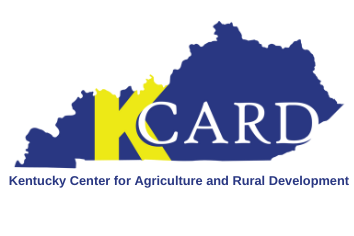At KCARD, when we are working through financials for clients, we are often asked “Do I need to file a Schedule F?” or we often ask businesses if they have ever filed a Schedule F.
A Schedule F federal tax form is simply the form required by the IRS to show profit or loss from your farming business. Many programs use the Schedule F as a way to determine who is and is not a farmer for purposes of determining eligibility.
If you are farming and a sole proprietorship you must file a schedule F form with your taxes. This reports your agricultural business’s profit or loss for the tax year. The Internal Revenue Service defines “farmer” in a very broad sense—whether you grow crops, raise livestock, breed fish or operate a ranch.
Schedule F asks you about your:
principal farming activity or crop;
income from selling livestock, produce, grains, or other products;
income received from cooperative distributions;
agricultural program payments;
Commodity Credit Corporation loans;
crop insurance proceeds;
federal crop disaster payments; and
any other sources of income
Schedule F is also used to claim tax deductions for your farming business, which will lower your tax bill by offsetting your revenue from the business. Deductions to claim may include (but are not limited to) the following:
chemicals;
conservation expenses
custom hire expenses;
depreciation;
employee benefits;
feed;
fertilizers;
freight and trucking;
gasoline and other fuel;
insurance;
interest;
hired labor;
repairs and maintenance;
seeds and plants;
storage and warehousing;
Supplies;
taxes;
utilities;
veterinary fees; or
rent or lease fees for vehicles, machinery, equipment, land, and the like.
For more information, IRS Publication 225, or the Farmer's Tax Guide, is a document that helps individuals involved in agribusiness navigate the farming-specific tax code. The document details and outlines how the federal government taxes farms. Individuals will be liable for taxes if the farm is operated for profit, whether the taxpayer owns the farm or is a tenant. IRS Publication 225 outlines the different accounting methods that farmers may use for running their operations and how farmers must report farm income.
Make sure your tax preparer (if you use one) is aware of your farming operation and has accurate revenue and expense information for your farm to be able to prepare the Schedule F. We have seen situations whereby individuals were farming but had never filed this form, and as such, they were not considered to have been farming. If you have questions about preparing to file a Schedule F, contact us at (859) 550-3972 or kcard@kcard.info.

